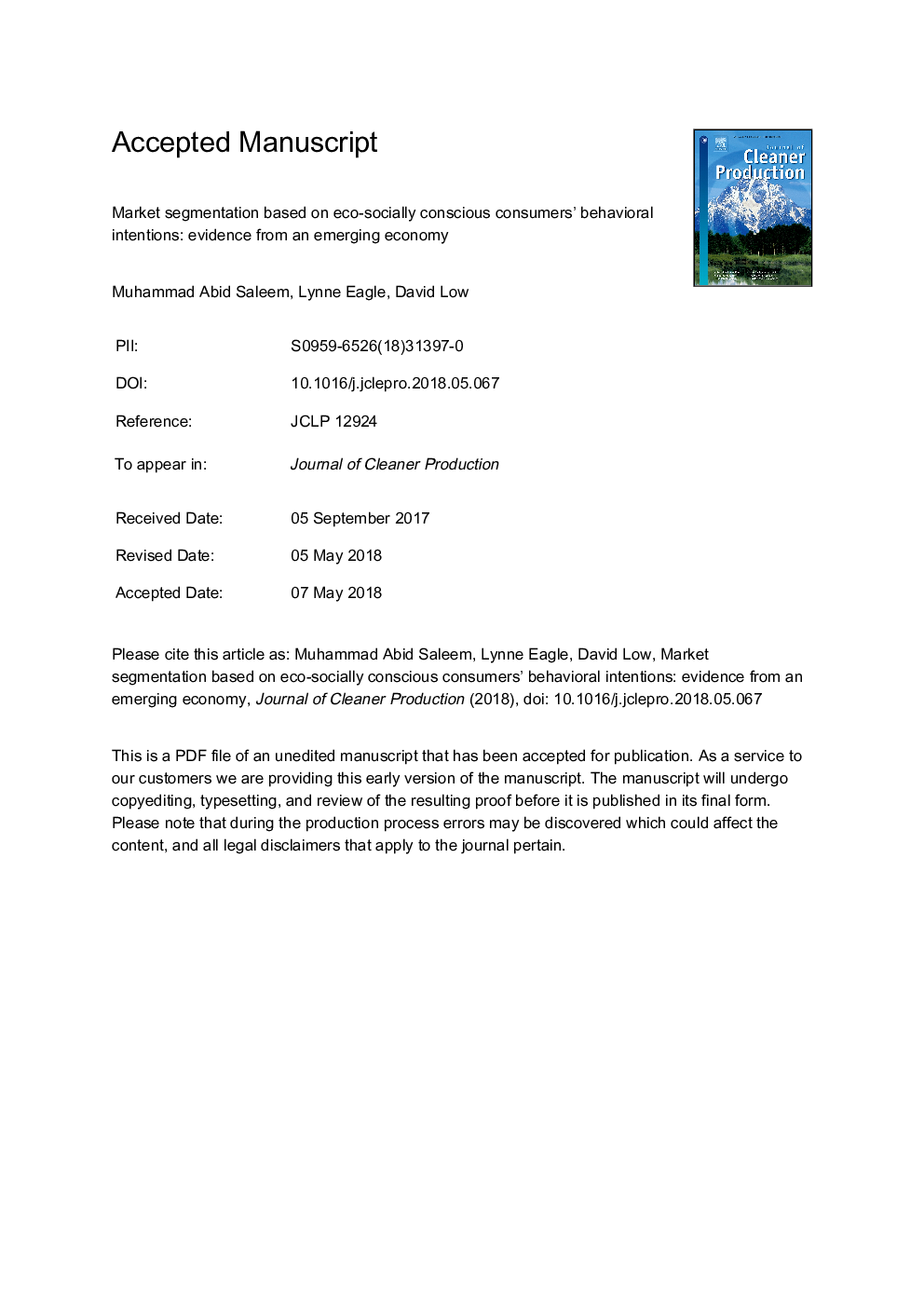| Article ID | Journal | Published Year | Pages | File Type |
|---|---|---|---|---|
| 8094331 | Journal of Cleaner Production | 2018 | 37 Pages |
Abstract
Despite the growing importance of environmental problems in emerging economies, only limited information has been available for policymakers regarding consumers' characteristics with regards to pro-environmental orientation. The purpose of this study is to provide an analysis of the socio-demographic and psychographic factors that discriminate green consumers from non-green consumers, in the context of eco-socially conscious consumers' behavioral intentions specific to choice and use of personal cars. This study offers novel insights from an empirical investigation conducted with a sample of 771 automobile industry customers in a growing market within South Asia, i.e., Pakistan. Findings from hierarchical cluster analytics, applied to a randomly selected national sample, revealed that slightly over 50% of the customers had eco-social tendencies towards the choice and use of personal cars. Multiple Discriminant Analysis showed that spirituality, perceived consumer effectiveness and environmental values were significantly discriminating factors between the three segments: Conservatives, Indifferents, and Enthusiasts. Moreover, consumers in the enthusiasts' segment showed growing interest in eco-social conservation via the use of personal cars. Analysis of demographic characteristics demonstrated that customers of the three segments differed significantly from each other based on income, education, gender and city of residence. Findings of the study provide important guidelines for marketers and policymakers seeking to develop actionable strategies for addressing the specific needs of the pro-environmental segment in the Pakistani market.
Keywords
Related Topics
Physical Sciences and Engineering
Energy
Renewable Energy, Sustainability and the Environment
Authors
Muhammad Abid Saleem, Lynne Eagle, David Low,
